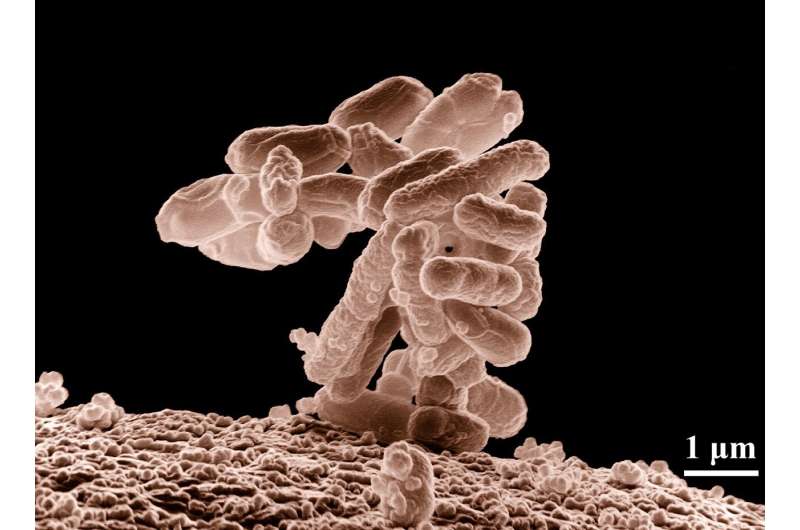This article has been reviewed according to Science X's editorial process and policies. Editors have highlighted the following attributes while ensuring the content's credibility:
fact-checked
peer-reviewed publication
trusted source
proofread
New antibiotic class effective against multidrug-resistant bacteria discovered

Scientists at Uppsala University have discovered a new class of antibiotics with potent activity against multi-drug resistant bacteria, and have shown that it cures bloodstream infections in mice. The new antibiotic class is described in an article in the journal Proceedings of the National Academy of Sciences.
Antibiotics are the foundation of modern medicine and over the last century have dramatically improved the lives of people around the world. Nowadays we tend to take antibiotics for granted and rely heavily on them to treat or prevent bacterial infections, including for example, to reduce the risk of infections during cancer therapy, during invasive surgery and transplants, and in mothers and preterm babies.
Increasingly though, the global rise in antibiotic resistance threatens their effectiveness. In order to ensure access to effective antibiotics in the future, development of novel therapeutics to which there is no existing resistance is essential.
Researchers at Uppsala University have published their work describing a new class of antibiotics developed as a part of multi-national consortia. The class of compounds they describe target a protein, LpxH, which is used in a pathway by Gram-negative bacteria to synthesize their outermost layer of protection from the environment, called lipopolysaccharide.
Not all bacteria produce this layer, but those that do include the organisms that have been identified by the World Health Organization as being the most critical to develop novel treatments for, including Escherichia coli and Klebsiella pneumoniae that have already developed resistance to available antibiotics.
The researchers were able to show that this new antibiotic class is highly active against multidrug-resistant bacteria and was able to treat bloodstream infections in a mouse model, demonstrating the promise of this class. Importantly, since this compound class is completely new and the protein LpxH has not yet been exploited as a target for antibiotics there is no pre-existing resistance to this class of compounds.
This is in contrast to the many 'me-too' antibiotics of existing classes currently in clinical development. While the current results are very promising, there will be considerable additional work required before compounds of this class will be ready for clinical trials.
The work to discover and develop this new class of antibiotics was supported by the EU project ENABLE. The ENABLE project, led by researchers at Uppsala University and the pharmaceutical company GlaxoSmithKline, brought together stakeholders from across Europe representing academia and large and small pharmaceutical companies to pool resources and expertise to advance early-stage antibiotic development.
This antibiotic class now continues to be developed in the follow-on project, ENABLE-2.
More information: Huseby, Douglas L., Antibiotic class with potent in vivo activity targeting lipopolysaccharide synthesis in Gram-negative bacteria, Proceedings of the National Academy of Sciences (2024). DOI: 10.1073/pnas.2317274121. doi.org/10.1073/pnas.2317274121
Journal information: Proceedings of the National Academy of Sciences
Provided by Uppsala University




















